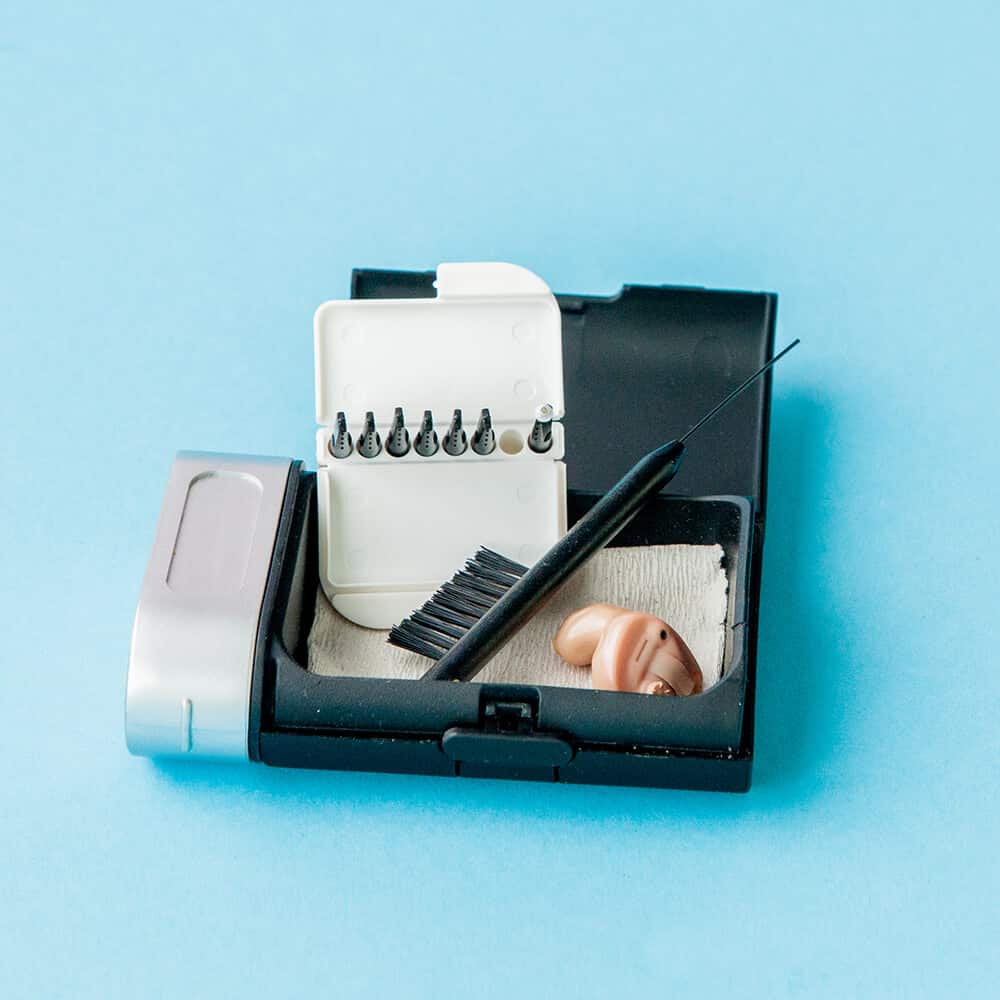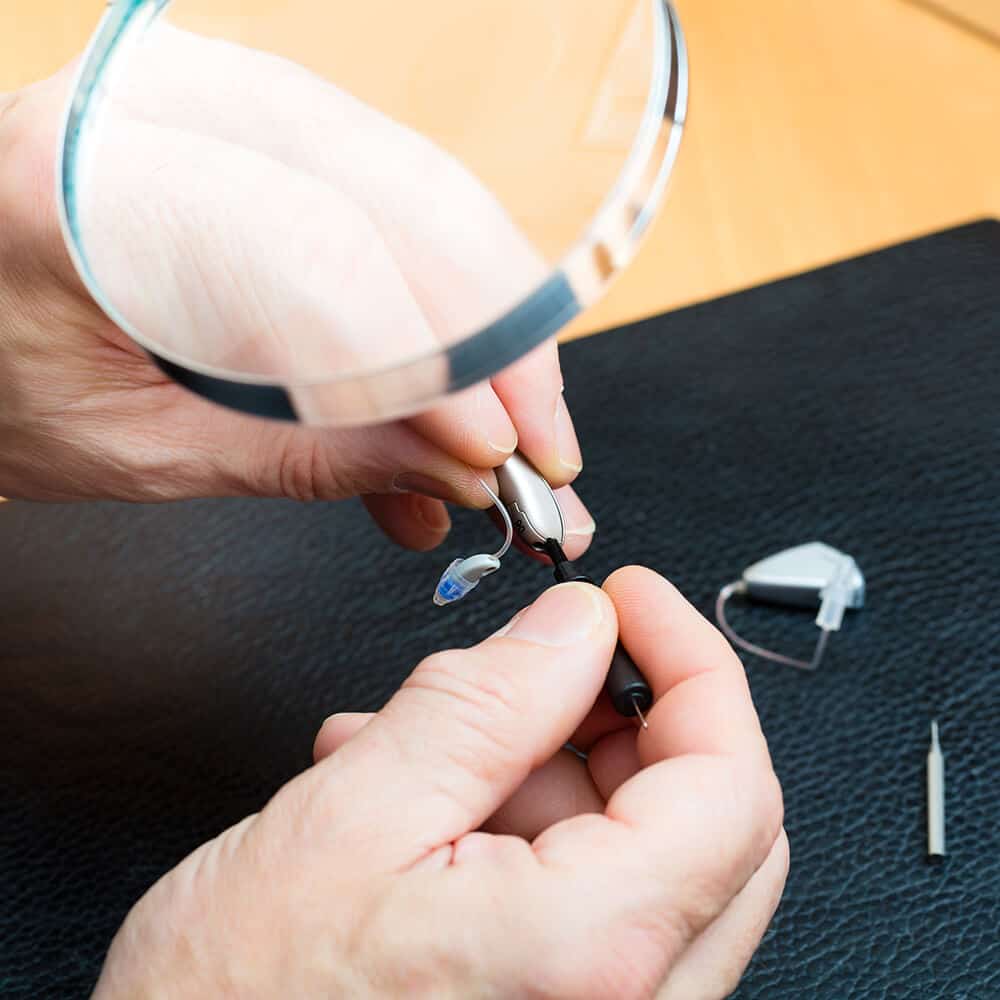Resound Hearing Aids
Hearing Aid Repair
Hearing aids are more discreet and powerful than ever before. And it's no wonder that we sometimes end up depending on them for almost all circumstances and situations. However, because they are composed of fragile electrical components, they are susceptible to dirt, moisture, and other substances.
However, you can continue to enjoy a rich listening experience by following a maintenance and care routine for your hearing aids.
How to look after your hearing aids
While we are pleased to help find you the hearing aids that fit your needs, we also want to make sure that your hearing aids stay dependable for the long haul.
Here's some routine maintenance you can do to help improve the life of your devices:
- When applying makeup, hair spray, sun lotion, perfume, and aftershave, remove your hearing aids as these substances can enter the system and cause damage.
- To prevent ear wax, dirt, or moisture, use a soft fabric, tissue, or cleaning tool to wipe your hearing aids. Do not use water or solvents, as your devices may be affected by this.
- Store your hearing aids in a dry box when not in use, and leave the battery pack open to preserve battery power.
- Never wear hearing aids while showering, swimming, or in heavy rain.
- Do not leave your hearing aids in direct heat or sunshine.
- Be careful not to drop them on hard surfaces or floors.
- Refrain from disassembling your hearing aid. If you do so, your warranty could be invalidated.

Troubleshooting your hearing aid
If you're getting feedback, sound interruptions, a less secure fit, or if there are other signs of malfunctioning, it's time to take a closer look.
Although we would never recommend opening up the unit yourself, you can try a few things at home if your hearing aid does not function correctly:
- Check for blockages in the amplifier, speaker, and vent openings
- Check for corrosion in the battery compartment
- Use a hearing aid brush to remove any dirt or debris from the casing
- Change the wax filter

Hearing aid repair
Contact us if you are unable to repair the hearing aid yourself. We have years of experience helping our hearing aid users get back to reconnecting with their loved ones. If we can't repair them, we'll send them to someone who can.
If you have a warranty on your hearing aid, the cost of replacing your hearing aid is probably negligible. If your hearing aid only needs tubing replacement or deep cleaning and modification, it doesn't cost a lot and can be done on-site.
If we have to ship it out and you don't have a warranty covering the hearing aid, the expenses are likely to be more significant. Defects in which hearing aids are recalled vary from structural defects to sound component failure (cracked or missing parts). You might be surprised to learn that restoring and fixing the outer shell is potentially more expensive than repairing and removing the internal parts.
When should I just buy a new hearing aid instead?
A hearing aid can, as with any electronic device, be damaged beyond repair. In this case, it is usually easier to replace the hearing aid with a new one. But how do you know when that time is?
- You have had them for five years or more. Generally, you should believe that your hearing aid is beyond repair. Hearing aids have a life expectancy of 5–7 years. If you have an older hearing aid, it might be time to replace it.
- There is damage to the outer shell. Replacing cracked shells is more costly, and it may be worth buying an entirely new system instead.
- The device has a lengthy repair history. While a new hearing aid might cost more upfront, an older model's maintenance and repair may be more work than is worth it.
Come and see us at Coweta Hearing & Balance Clinic if you are having trouble with your hearing aid. Regardless of whether or not you purchased the device from us, our hearing experts will do their utmost to get it working again. Contact us for an appointment today.
